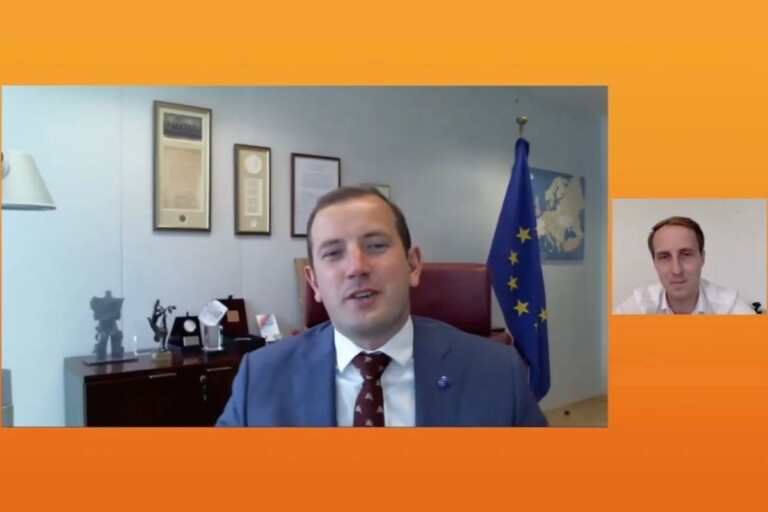Moderated by Azeem Azhar, this DLD25 expert panel discussion delivers a frontline view of how exponential technologies – especially AI and drones – are reshaping modern warfare and defense in Europe. The session brings together Kadi Silde (Helsing), Jack de Santis (OmiraAI) and former NATO Assistant Secretary General Giedrimas Jeglinskas, now a member of Lithuania’s parliament.
Azhar sets the stage by noting that while exponential technology holds great promise, it has also rapidly transformed the threat landscape, with AI, cyber-physical attacks, and especially drones changing the face of modern conflict.
“You can take out an entire tank with a single drone that costs less than $1,000”, confirms Jack de Santis, who transitioned from foreign volunteer drone pilot in Ukraine to founding the defense tech startup OmiraAI.
However, Russia’s advancements in electronic warfare – jamming communications and disrupting GPS signals – pose severe challenges, de Santis warns. “This is not getting nearly enough attention, but it is really one of the most critical aspects on the battlefield.”
De Santis also highlights the astonishingly rapid pace of technological innovation on the battlefield. After eight or nine months of recovery soldiers “need to go back to training before redeploying”, he says, because drone warfare techniques change so quickly.
Kadi Silde underscores that Ukraine and Europe “will always be outnumbered” in legacy systems. Therefore, she argues, they must focus on “precise mass-producible” systems that can “deliver the same effect” as legacy systems – or even be better than these.
Jeglinskas, now chairing Lithuania’s National Security Committee, warns that a Russian victory would “have massive impact on everyday life” across Europe, emboldening other autocrats and destabilizing the global order. “War is happening, war is real”, he says. “We can hide from it, we can ignore it, we can sort of voice concern – but if we don’t do anything about it, this threat is not going to go away.”






